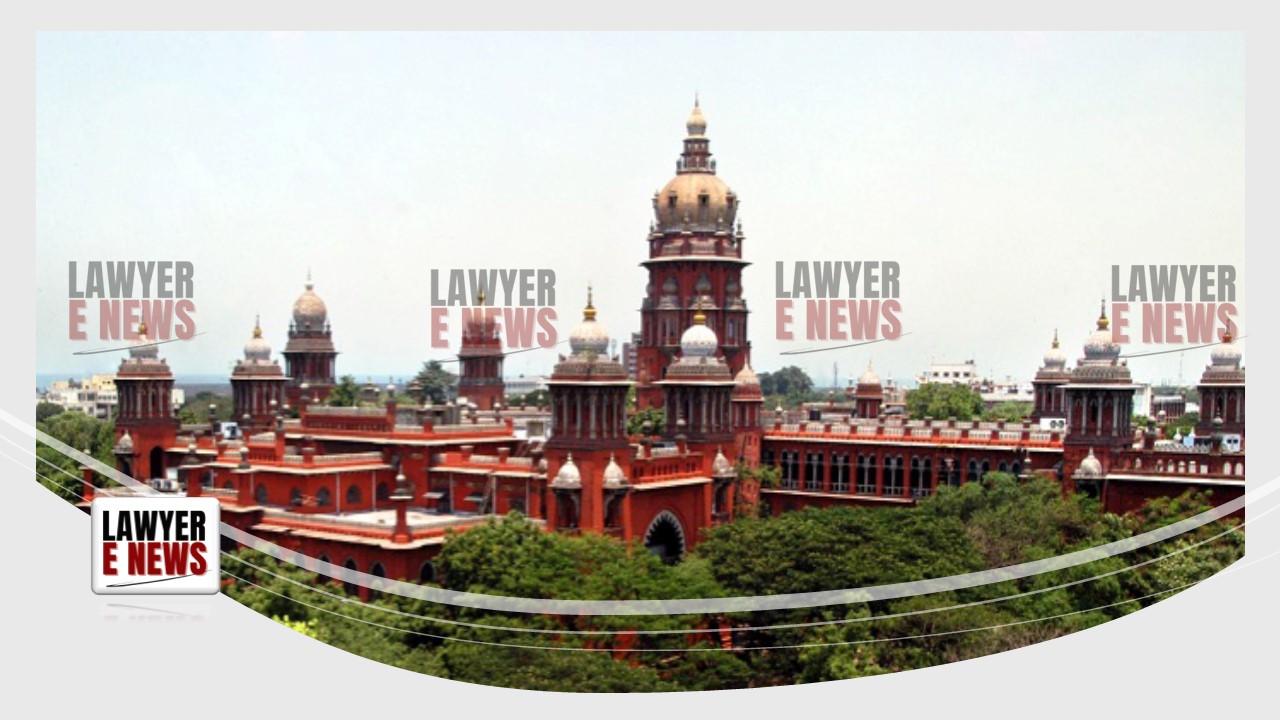-
by Admin
15 February 2026 5:35 AM



The High Court of Judicature at Madras has delivered a significant judgment in C.S.No. 148 of 2022, favoring the plaintiffs in a property dispute case. The court, presided over by Justice C.V. Karthikeyan, affirmed the validity of the 1953 settlement deed and the subsequent sale deeds, rejecting the defendants’ claims of ancestral property. The judgment mandates the defendants to vacate the property and pay damages for illegal occupation, reinforcing the legal principles surrounding property title and possession.
The plaintiffs, T. Muthu Chettiar, T. Vairavan Chettiar, M. Alagammal, and V. Sivagami, filed a suit seeking possession of a property located at New Door No. 92/2, Rama Naicken Street, Nungambakkam, Chennai. The defendants, Kumudavalli, S. Padmapriya, M. Murali, M. Sundaramurthy, and B. Gowri, claimed the property was ancestral and that a 1953 settlement deed by T. Apparsundara Mudaliar in favor of Mehanatha Mudaliar was invalid. The plaintiffs contended that the property was legally acquired through a valid sale deed in 1995, and they sought to evict the defendants and recover damages for illegal occupation.
The court examined the 1953 settlement deed executed by T. Apparsundara Mudaliar, which conveyed the property to Mehanatha Mudaliar and his sister, Saroja. The defendants argued that this deed was non-est and did not bind them. However, the court noted that this settlement deed was followed by a series of legal transactions, including a 1985 sale deed and the 1995 sale deed to the plaintiffs, which were never challenged by the defendants. The court concluded, “The settlement deed and subsequent sale deeds are binding on the defendants, and their failure to challenge these documents within the limitation period nullifies their claims.”
The court observed that the plaintiffs had perfected their title through the 1995 sale deed and subsequent actions, such as obtaining patta and paying statutory taxes. Justice Karthikeyan stated, “The plaintiffs have established their title through sale deeds, revenue records, and statutory payments, which corroborate their lawful ownership of the property.”
The court dismissed the defendants’ claims that the property had an ancestral nucleus, noting their failure to challenge the settlement deed in earlier legal proceedings. The judgment emphasized, “The defendants’ possession of the suit property is unlawful, and they are liable to vacate and hand over possession to the plaintiffs.”
The plaintiffs also sought permanent injunctions to prevent the defendants from alienating or modifying the property. The court granted these injunctions, affirming the plaintiffs’ entitlement to recover possession and prevent unauthorized changes to the property.
The court extensively discussed the principles of property law, particularly regarding possession and title. It highlighted the significance of adhering to legal formalities and statutory requirements in property transactions. “The plaintiffs’ compliance with legal and statutory obligations strengthens their claim and underscores the defendants’ unlawful occupation,” the court stated.
Justice Karthikeyan remarked, “The defendants’ failure to counterclaim or challenge the settlement deed within the limitation period renders their assertions invalid. The plaintiffs have perfected title through legitimate means and are rightfully entitled to possession.”
The High Court’s judgment in favor of the plaintiffs underscores the importance of adhering to legal formalities in property transactions and the necessity of timely legal challenges. The court’s decision reinforces the legal framework for addressing property disputes and sets a precedent for similar cases. The defendants are ordered to vacate the property within four weeks, and the plaintiffs are granted permanent injunctions to protect their lawful ownership.
Decision Date : 19.07.2024
